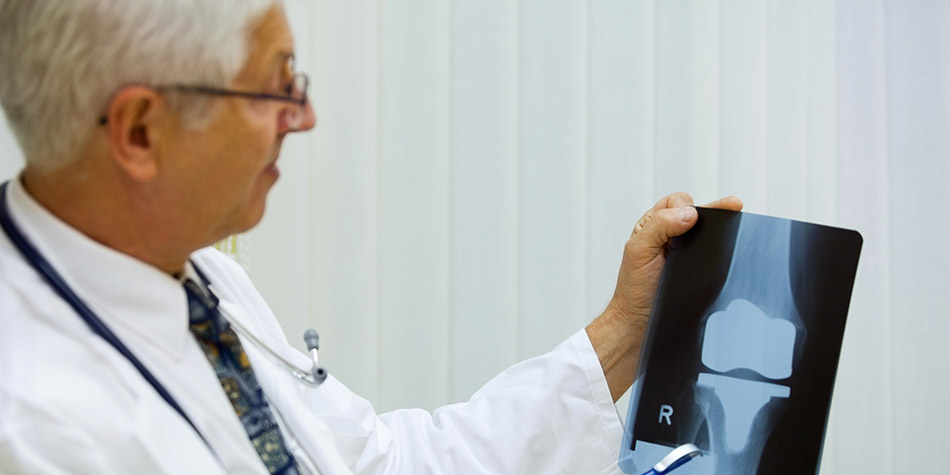
Advances in knee replacement mean implants feel more natural, function better and last longer.
SJRI surgeons have long been on the leading edge of research and education to help advance joint replacement techniques and protocols to meet the needs of their patients. While there is a myriad of implant devices that can be used in knee replacement, SJRI surgeons carefully choose implants based on evidence-based results grounded in research and patient data.
Dr. David DeBoer is passionate about performing knee replacement that provides the patient with function and stability that most closely matches that of a normal knee.
“When I started practicing in the mid 90s, patients were satisfied with a knee replacement that simply relieved their pain,” said Dr. DeBoer. “But as patients have gotten younger and are typically more active, their demand for a more functional knee has helped drive refinement in the implants themselves as well as more sophisticated technology and surgical techniques that result is better alignment, greater function and longevity of the replacement joint.”
As devices have evolved and become more sophisticated, it has become even more important that surgeons choose implants that allow patients to be most functional and participate in higher demand activities.
“We know that knee kinematics or knee movement plays a critical role in the selection of a joint implant,” said Dr DeBoer. “When you are exercising and bending the knee, it not only bends, but also has a rotational component to it. The knee is a complex joint, and a decade ago we could not replicate that function as closely as we can today.”
According to Dr. DeBoer, modern studies show that normally the medial compartment of the knee moves less than the lateral compartment. He has found that an implant that more closely replicates that natural balance in the joint provides his patients better stability of the knee and better overall function for the patient.
“Better sterilization and better materials mean today’s implants can last 20-25 years,” he said. “While the medial pivot knee can vary broadly, studies have demonstrated that some implants have performed well over nearly two decades of patient tracking.”
“My patients want to be able to bike long distances or go on a golf trip and play 18-36 holes of golf on consecutive days without swelling, inflammation or pain,” said Dr. DeBoer. “I know which implant device in my hands help deliver those outcomes. It replicates more normal kinematics and feels more normal, and I think often gives patients a faster recovery.”
Dr. DeBoer emphasizes the importance of good communication between the patient and their surgeon in achieving desired surgical results. Patients need to be able to articulate their lifestyle objectives before surgery and should feel comfortable their surgeon can deliver the outcome they desire.